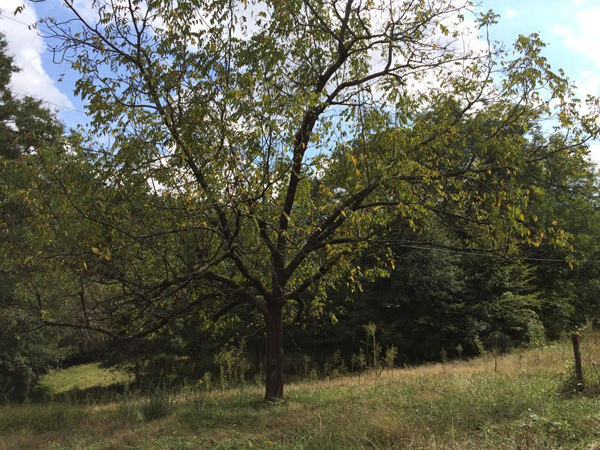Two black walnut trees stood tall for more than 55 years at 294 Rope Mill Road in Woodstock. They were planted by landowner James Queen, a cabinetmaker. They not only gave shade on hot, sunny days and provided relief from a hard day’s work, but Queen also used nuts from the trees in his furniture dyes. While they may no longer be standing, the trees occupy an important place in the story of Camellia Place.
Today, a beautiful library table crafted from one of those black walnut trees stands proudly in the Camellia Place library. It holds the legacy of the land and reflects the handiwork of local pastor and woodworker Greg Michael. Swords and Clifton believed that Pastor Michael’s creativity was a good fit with the mission of Camellia Place.
The Library is the room where potential residents and families will be invited to talk about life at Camellia Place. By definition, a library is a place set apart to contain books, periodicals and other materials for reading, viewing, listening, study or reference. Here, it is designed to be warm and welcoming, conducive to conversation and learning, and to promote discovery of what makes Camellia Place special.
“Our future is rooted in our past. How perfect is it that we can sit at the beautiful table in the library at Camellia Place and re-tell the story of the black walnut trees?” reflects Denise Swords, Camellia Place founding partner.
The smaller of the two trees was preserved for repurposing as well. A magnificent collection of handcrafted pens was created from its wood by a woodworking hobbyist and friend of Lauren and Brad Clifton. The pens will truly continue to write the story of Camellia Place.
A people without the knowledge of their past history, origin and culture is like a tree without roots.




